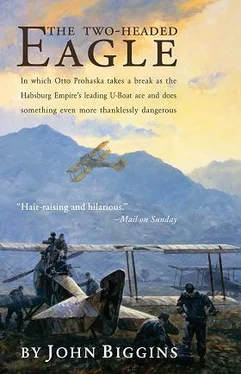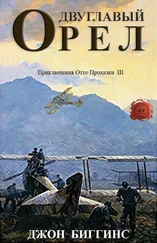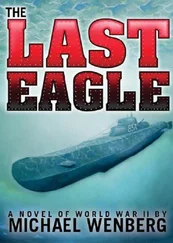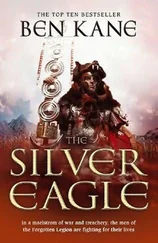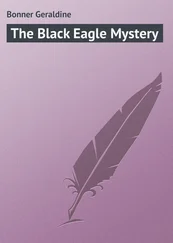So I returned officially to the Imperial and Royal U-Boat Service on Christmas Eve 1916. I had been exactly five months in the Flying Service, yet it had seemed so much longer. I handed in my flying kit, removed my airman’s wings from my jacket and, from that day to this, have never flown in an aeroplane except as a passenger. The events of my brief but hectic career as an aviator for the House of Habsburg were soon put behind me, then gradually buried and lost beneath the detritus of all the years and all the lives that followed.
And Franz Nechledil, my pilot in the Naval Air Service? The trial and shooting of the mutineers caused something to snap inside him I think. He became a great Czech patriot and rose to the rank of general in the Czechoslovak Air Force in the 1930s. He stayed in Prague after 1939 and was deeply involved from the beginning with the Czech Resistance, taking part in an early attempt in 1941 to kill the infamous Reichsprotektor Heydrich. The Gestapo caught him in October of that year. He knew a great deal about the organisation of the Resistance, and his captors knew that he knew. Yet still he appears to have kept his mouth shut for ten awful days, resisting the worst that they could do to him until he finally died of heart failure. I have no way of knowing, but I imagine that what sustained him through his atrocious ordeal was the memory of how he had turned in two of his fellow-countrymen a quarter-century before. But he gave away nothing, and when the Gestapo arrested his fellow-conspirators two days later it was because someone had betrayed them for money. They put his name on a monument to the Martyrs of the Nation in Prague in 1946—in the next row to Vackar and Eichler as it happened. The Communists demolished it two years later I understand.
Memories, memories. You must think me an awful old bore. Yet for sixty- five years I scarcely breathed a word about my time as a U-Boat commander, until the photograph album turned up again this spring. And I would also like to be able to say that I never told anyone about my brief flying career. But this is not strictly true: just once, not many years ago, I was persuaded to talk about my days with the k.u.k. Fliegertruppe.
It was in 1978 I think, in the Home at Iddesleigh Road in Ealing, where I had already lived for several years after Edith died and I could no longer look after myself. It was one wet summer afternoon as I was sitting in an armchair in the lounge trying to read. Gradually I became aware that I was being irritated by a loud, honking voice with an American accent. It came from over in Mr Kempowski’s corner. I turned around to look, and saw the old fool sitting in an armchair with a blanket over his legs being interrogated by a large—not to say gross—individual in his early thirties with a great curly mane of hair, heavy horn-rimmed spectacles and a drooping moustache in the style of the late Pancho Villa. The young man was holding the microphone of a tape recorder towards Kempowski and trying to induce him to talk into it by bawling into the old man’s ear. He was evidently not having much joy: Kempowski was near-senile by then and his English had always been minimal, while the young man’s German was ludicrously poor. This puzzled me: why German in a Polish old people’s home? Then I remembered: some weeks before, Mother Superior had received a letter from an American air-historian—or “aviation buff” as he styled himself—asking whether he might have an interview with the noted World War One flying ace Gustav Kempowski. I thought “flying ace” was a bit thick: Kempowski had flown briefly as a junior officer in Jasta 2—Richthofen’s old squadron—in the autumn of 1918 and had then transferred to the Polish Air Force.
It appeared that the interview was not going well: Kempowski was pretty well gaga by then—he died a few weeks later—and in any case, he regarded the Polish-Soviet war of 1920 as vastly more interesting and important than the earlier conflict in which he had flown for the German Kaiser. At length the old man cackled maliciously and pointed across to me.
“Prohaska zere—he also flieger in First Weltkrieg—fly in Austriacki Fliegertruppe gegen Italia—you speak him also, yes-no?” The old rogue had remembered, as people sometimes will when their minds are failing, an interview which I had given to a Berlin paper in 1916 after I had brought down the Italian airship. I got up to leave, but my lines of escape were blocked: the young American had also got up and was advancing to pin me into the corner with his bison-like bulk. I saw Mother Superior simpering in the background. I would have to be polite or there would be trouble for me later on.
He proferred me a huge, flabby paw to shake. It was like having a giant toad placed in my hand.
“Wow! I mean, this is incredible—another First World War aviator in the same afternoon—I can hardly believe this.” Without so much as a by your leave he sat down opposite me and loaded another cassette into his little machine. I was already irritated by his evident belief that we old people have no minds of our own, no independent value except as historical relics and memoir-quarries. But with Mother Superior eyeing me in that sinister way of hers I had to sit still and try to be civil.
Without looking at me he introduced himself.
“Hi there. I’m Frank T. Mahan of the Lansing Michigan World War One Air Enthusiasts’ Society. I’m over here in Europe collecting reminiscences from those who flew in that great conflict and you, sir, are the first person I’ve met so far who flew in the Austro-Hungarian Air Force on the Italian Front.”
“Then I congratulate you on your success. But what is it that you want to know? I am no historian myself and I can only tell you what I happened to see, which was not a great deal really. It was all rather confused and quite frankly I have not given it a great deal of thought in the years since. I was a naval officer you see, and only seconded for a while to the k.u.k. Fliegertruppe. And anyway, I flew as an observer in two-seaters, which was usually rather boring.”
“But sir, do you realise that you are one of the privileged few who had the honour to fly in that first great war in the air?”
“It was a privilege that I would gladly have foregone. And what do you mean by ‘privileged few’ anyway? That I was privileged to be able to do it, or that I was privileged to be among the few who came out of it alive? I think that I might disagree with you on the first count at least.”
He appeared not to have heard this remark; only stuck the microphone impertinently under my nose. “Tell me, how many missions did you fly in all? And how many aerial combats were you involved in? What was your personal score?”
“Really, I have no idea. I was with the Fliegertruppe on the Isonzo Front for about three months, then for a month or so with the Naval Air Service on convoy patrol. I don’t think that we ever thought of them as ‘ missions.’ We went up in the air when we got an order from Army Headquarters or from the division, and most of the time it was reconnaissance or artillery-spotting or a little bombing behind the lines. But usually we just sat on the ground because of bad weather or lack of aircraft. As for combats, I don’t really remember. Certainly the Italians shot at us a good deal, and we shot back at them where we could; sometimes with less success, sometimes with more. But ‘combats’ is a grand-sounding name for what took place. Usually it was so quick that it was over before we realised it had happened. You pressed the trigger and shut your eyes, and when you opened them again they had either gone away or you were lying in hospital.”
This person’s manner was already beginning to irritate me intensely. I usually get on well with Americans—far better than the English in fact— but when I meet one whom I dislike, the aversion usually borders on the homicidal. What right had this fat buffoon to come digging around among the bones of the dead to feed his hobby, collecting our pain like stamps? Already the memories were coming back: the smells of acetone and petrol and cordite; the sound of Mizzi Gunther and Hubert Marischka as the Carso wind rattled the tent sides; the pock-pock-pock of machine-gun fire and the dreadful crunching as we slithered across the glacier. What could he know of it all? He had not even been in Vietnam, he said, having wangled a draft exemption (though he did not put it quite as bluntly as that). At last he fixed me with a bovine gaze through his thick spectacles. I sensed that the Big Question was coming. When it came it was of such stark imbecility that it fairly knocked the breath out of me.
Читать дальше
